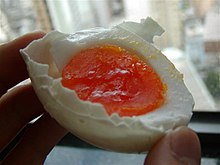Description
🚚 The Fastest Delivery Time : 2-day delivery.
🐝 Supplier / Place Of Origin:Indonesian Spices & halal Series
🌱 About the Producer / Supplier:
Indonesian cuisine is a collection of various regional culinary traditions that formed in the archipelagic nation of Indonesia. There are a wide variety of recipes and cuisines in part because Indonesia is composed of approximately 6,000 populated islands of the total 17,508 in the world's largest archipelago, with more than 1,300 ethnic groups.
There are many regional cuisines, often based upon indigenous culture with some foreign influences.
In 2023/2024, TasteAtlas rated Indonesian cuisine as the sixth best cuisine in the world. Indonesian cuisine is placed behind Italian, Japanese, Greek, Portuguese, and Chinese cuisines, making Indonesian the best-rated cuisine in Southeast Asia.
🛍 Product Information:
before the Mid-Autumn Festival (according to the lunar calendar), people in countries such as Vietnam, Singapore, China, Taiwan, Hong Kong ... will make Salted Duck Eggs. This is the time when people make it the most because it is an important ingredient in the filling of moon cakes. This video helps everyone learn more about this dish.
中秋節(旧暦)の前に、ベトナム、シンガポール、中国、台湾、香港などの国々でアヒルの塩漬け卵が作られます。このビデオは、月餅の中身を理解するのに役立ちます。
A salted duck egg is an East Asian preserved food product made by soaking duck eggs in brine or packing each egg in damp, salted charcoal. In Asian supermarkets across the Western world, these eggs are sometimes sold covered in a thick layer of salted charcoal paste. The eggs may also be sold with the salted paste removed, wrapped in plastic, and vacuum-packed. From the salt curing process, the salted duck eggs have a briny aroma, a gelatin-like egg white, and a firm-textured, round yolk that is bright orange-red.
Salted duck eggs are normally boiled or steamed before being peeled and eaten as a condiment to congee or cooked with other foods as a flavoring. The egg white has a sharp, salty taste. The orange-red yolk is rich, fatty, and less salty. The yolk is prized and is used in Chinese mooncakes to symbolize the moon.
Salted eggs can also be made from chicken eggs, though the taste and texture will be somewhat different, and the egg yolk will be less rich.
Salted eggs sold in the Philippines undergo a similar curing process, with some variation in ingredients used. They are dyed red (hence called itlog na pula or ‘red eggs' in English) to distinguish them from fresh duck eggs.
Food safety
Authentic traditional Indonesian home-cooked meals are made fresh and eaten daily, with little or no use of processed, canned or pickled foods, meaning minimal preservatives and sodium content. Most of the ingredients are bought fresh from local traditional markets early in the morning, cooked in the late morning and mainly eaten at lunch. Leftovers are stored in cabinets or on the table covered with tudung saji (food covers made of woven bamboo to protect food from insects or other animals), all of which are heated at room temperature and eaten again at dinner. Traditionally, Indonesian dishes are rarely preserved for long periods of time, so most dishes are cooked and eaten on the same day. Some exceptions apply to dried, preserved and processed foods. For example, dried rendang is safe to eat for several days. Most homes have modern refrigeration technology.
Authentic traditional Indonesian home-cooked meals are made fresh and eaten daily, with little or no use of processed, canned or pickled foods, meaning minimal preservatives and sodium content. Most of the ingredients are bought fresh from local traditional markets early in the morning, cooked in the late morning and mainly eaten at lunch. Leftovers are stored in cabinets or on the table covered with tudung saji (food covers made of woven bamboo to protect food from insects or other animals), all of which are heated at room temperature and eaten again at dinner. Traditionally, Indonesian dishes are rarely preserved for long periods of time, so most dishes are cooked and eaten on the same day. Some exceptions apply to dried, preserved and processed foods. For example, dried rendang is safe to eat for several days. Most homes have modern refrigeration technology.
鹹蛋(シエンタン、中国語: 鹹蛋(簡体字: 咸蛋)、xiándàn)とは、中国、香港、台湾、東南アジアで広く作られているアヒルなどの塩漬け卵。発酵食として、また調味料の代わりとして中国の家庭料理の食材の一つとなっている。
概要
塩水に生卵を浸し、時折かき混ぜながら1ヶ月程度寝かせて造る。多くは茹でて、ゆで卵状態にして、粥などと共に食べるが、生食する場合もある。黄身を満月に見立てて月餅の中に入れることも多い。塩気が強いので、料理の調味料代わりに使われることもある。
一般にアヒルの卵で作った「鹹鴨蛋」(シエンヤータン)が多いが、ニワトリで作った「鹹鶏蛋」(シエンジータン)など、他の鳥の卵でも作られている。
🥘 Commonly used dishes:




















